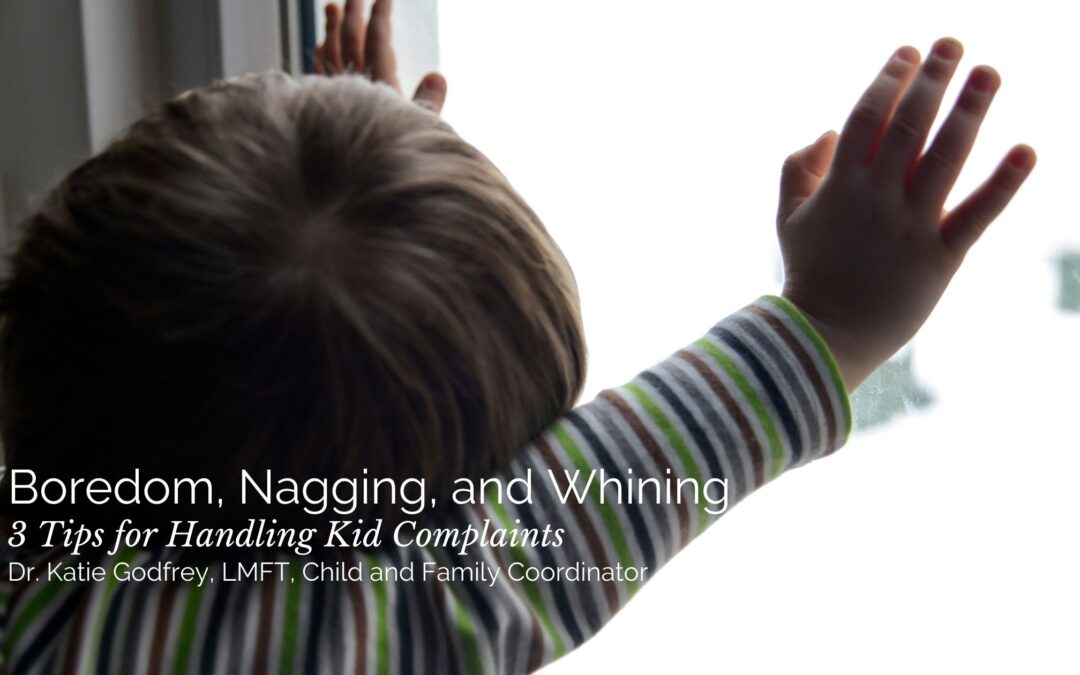As a parent or child care provider, who hasn’t experienced whining and complaining from children? Especially as we have all been spending a lot more time together this past year. This is often a difficult experience for parents, and often we struggle to know what to do. As a Marriage and Family Therapist, I have a lot of empathy for parents coping with these sorts of challenges and wanted to offer some quick tips to modify those unpleasant behaviors. With all of the following techniques, make sure to explain to your child what you are going to do and why before you implement the change. That way they will understand what you are doing more quickly and they will be less confused.

Quick Tip: Offer a chore and hold them to doing it. “Would you rather vacuum or wash dishes?” They will find ways to entertain themselves very quickly!
Problem: Repeated requests. Children (and adults!) will repeatedly ask the same question, hoping for a different answer. A typical adult response is often, “How many times do I have to answer you?“, said in an exasperated way. This encourages the child to reiterate their question because they got your attention.
Quick Tip: Try saying: “Asked and answered,” and then remain silent to repetitive questions. This clearly indicates that the question was asked and then answered, and there is no need for further discussion. Say it one time, and then don’t answer when they continue to ask. They will catch on quickly!

Quick Tip: Silence. Do not respond in any way to the whining. Just go about what you were doing beforehand. When your child realizes you will not respond to them when they are whining, they will start communicating in a non-whiny voice. One word of warning: This technique is known for temporarily making the behavior worse, so make sure you stick with it and get over that hump!
Again, it is extremely helpful to discuss these new responses with children prior to using them. Additionally, like most parenting techniques, consistency and follow-through is key.
Pandemic parenting has it’s challenges, I see you parents!

